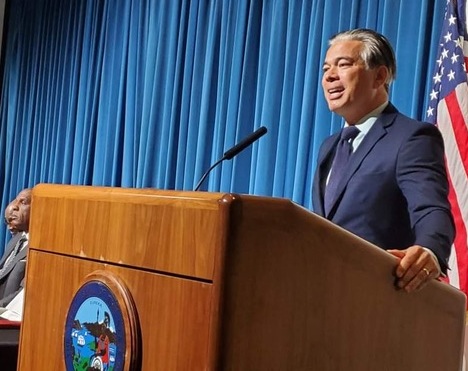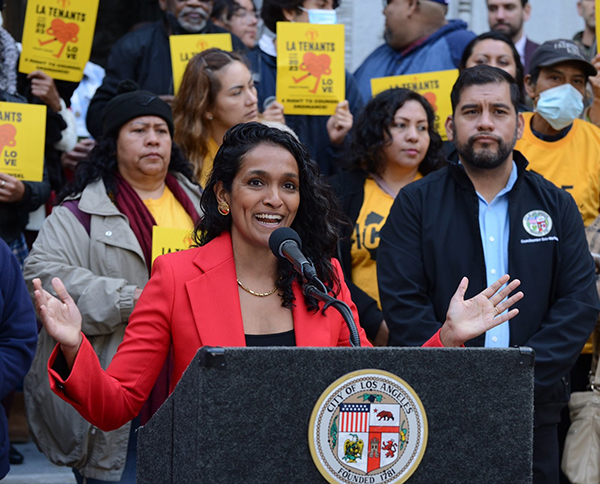Minority communities affected by maternity ward closures

By Kristen Hwang, Ana B. Ibarra and Erica Yee
Contributing Writers
LOS ANGELES — Across the country, communities are scrambling to save maternity care. About 3% of U.S. hospitals, mostly in rural areas, have stopped delivering babies since 2011, according to a report by health consulting firm Chartis.
California has lost an even greater share: More than 14% of the state’s 337 hospitals ended maternity services during the same period.
The California Department of Public Health, in an emailed statement, said it is aware of hospitals that have chosen to reduce or eliminate labor and delivery beds, but that in the last three years the total number of beds across the state has slightly increased.
The department “is exploring any potential avenues within its authority to promote retention or further increases of these beds, in the interest of making sure maternal care across California remains protected.” the statement said.
Some experts say it will take federal intervention to slow closures. On top of increasing reimbursement rates, they have also suggested putting policies in place that would make it harder for hospitals to close maternity services in already underserved communities.
For now, state Sen. Dave Cortese, D-Campbell, is carrying a bill to improve transparency and public notification when a hospital decides to close a maternity ward.
Private hospitals aren’t currently required to disclose the reasons for eliminating services, he said.
Another bill by Assemblywoman Akilah Weber, D-La Mesa, who also is an obstetrician, would require hospitals to notify the state a year in advance if a maternity ward is at risk of closure due to staffing or financial limitations.
Cortese and Weber say their measures would give the state and local governments information needed to intervene if there are potentially unnecessary closures.
They won’t, however, bring back services that have already been lost in communities like Detranay Blakenship’s.
Blakenship was 16 weeks pregnant when she found out she was expecting. The days passed quickly, and soon she was seven centimeters dilated at Martin Luther King Jr. Community Hospital in Willowbrook.
The 26-year-old first-time mom wasn’t sure what to expect during labor, but the team at MLK’s maternity ward soon felt like family.
Every hour midwife Angela Sojobi came to check her progress and offer cheerful words of encouragement. When it was time to push, a nurse lowered the lights and flipped on the soothing sound of rain.
After 14 hours of labor, baby Myla made her appearance in the world.
“That’s my grandbaby!” Latrina Jackson, Blankenship’s mother, shouted. The family’s cheers rang down the hall.
Blakenship lives just blocks away from MLK, where her labor was cozy and personalized. It was the kind of birth that many parents-to-be hope for, but a decade of widespread cutbacks to maternity care in California has made it almost a luxury.
It’s available only because MLK’s leaders are fighting to keep maternity services despite steep financial losses.
Next to her delivery room, a young couple also covered by Medi-Cal rests while their newborn son sleeps in a bassinet.
The mother didn’t think she would be able to deliver vaginally after a previous cesarean section, but MLK gave her the chance that other hospitals wouldn’t. At the end of the hall, a homeless woman living in a nearby shelter labors with a midwife by her side.
“If this community lost the services, I don’t know where these women would go,” midwife Sojobi said minutes after catching Blankenship’s daughter.
More than 90% of the patients who go to MLK are covered by public insurance programs like Medi-Cal or Medicare.
In contrast, most hospitals that still operate maternity wards rely heavily on private insurance. Patients with private insurance represent only 3% of MLK’s patient population.
Thirteen of the 17 maternity ward closures in L.A. County happened at hospitals that serve what the state calls a disproportionate share of low-income patients. Six of those closures happened in areas where shortages of medical providers make it difficult to get any type of health care, a CalMatters analysis of state and federal data shows.
MLK’s chief executive Dr. Elaine Batchlor and other hospital administrators who serve mainly low-income patients say this creates a problem because public insurance reimburses far below the cost of care. The added expense of 24-hour staffing in a maternity ward makes it a loss leader for most hospitals.
Although more than 40 hospitals still deliver babies in the county, doctors say the swath of recent closures has caused care delays.
The remaining maternity wards have to absorb new patients, sometimes overwhelming them, said Dr. Lisa Moore, a family medicine doctor with Venice Family Clinic, a community health center with clinics throughout the region. Since 2020, the number of babies born at L.A.’s three county-run hospitals has increased by several hundred each year, state data shows.
Medi-Cal patients often bear the brunt of delays. Appointments for pregnant Medi-Cal patients who need scheduled inductions have been increasingly postponed, and some hospitals have stopped taking all but the highest-risk Medi-Cal patients, multiple doctors interviewed for this story said.
“People are angry, and they’re scared often because we’re telling them ‘We need to induce you. It’s not safe for you to continue being pregnant.’ But then they’re also hearing ‘Not yet. There’s no appointment,’” Moore said.
The other hospital near MLK that stopped delivering babies is Memorial Hospital of Gardena. Owner Pipeline Health System, another national chain, closed Memorial’s maternity ward in 2020.
The hospital posted an average annual profit margin of 16% over the five years preceding its closing of labor and delivery services, state records show.
Pipeline owns four hospitals in L.A. County. Only one offers labor and delivery services. Jane Brust, a spokesperson for Pipeline Health System, said it would be “cost prohibitive” for Pipeline to implement obstetrics at its other three hospitals.
Meanwhile, nonprofit hospitals can also be part of large, well-funded systems, such as Kaiser Permanente and Sutter Health, but by law are required to assess the needs of their community and invest in those needs in exchange for their tax-exempt status.
The attorney general holds additional regulatory power over nonprofit hospital acquisitions. That is not the case for transactions between for-profit systems.
“These aren’t public entities. They make the decisions in their boardroom, and nobody really knows what the basis was,” Sen. Cortese said.
That means for-profit systems tend to have more leeway in prioritizing the bottom line.
“In order to make money, you have to increase your revenue or decrease your expenses,” said Ge Bai, professor of health policy and management at Johns Hopkins University. “To decrease expenses is to cut off those unprofitable services.”
Two hospitals neighboring MLK that recently eliminated labor and delivery were high-earning for-profit facilities.
Other experts say policymakers need to look beyond money.
“The bigger public policy question is, should hospital-based (obstetrics) be part of a set of services we feel everyone in California needs access to and should be a certain geographic distance from,” said Kristof Stremikis, director of markets and insights at the California Health Care Foundation.
For communities in the neighborhoods surrounding MLK, Centinela and Gardena, that’s an easy answer, said Gabrielle Brown, maternal and infant health program coordinator with Black Women for Wellness.
After Centinela ended its maternity program, Black Women for Wellness canvassed households within 10 miles of the hospital and held a community town hall to assess the impact. The verdict: Residents of Inglewood, a majority Black and Latino city, felt abandoned, Brown said.
The community was also reeling from the death of April Valentine, a young Black woman who died during childbirth at Centinela nine months before the hospital stopped labor and delivery care.
Last year, state regulators fined Centinela $75,000 for lapses in care that led to the death. The hospital has previously denied allegations of improper care and racial bias.
“Instead of improving the services that they offer, they decided to remove them,” Brown said.
Prime spokesperson Elizabeth Nikels said Valentine’s death was not a factor in Centinela’s maternity ward closure.
If MLK were to close, patients including Blankenship and her daughter Myla would have to travel farther for delivery and postpartum services — barriers that often affect whether a pregnant patient sees a provider at all.
In urban areas, the next hospital could be a few miles down the highway, but L.A.’s notorious traffic easily makes travel time untenable. They’d also lose the rare access to a midwife.
Patients and providers at MLK are acutely aware of how dangerous those barriers can be. A whiteboard in Blankenship’s room listed her birthing goals, the words “Safe Delivery” handwritten in bold.
Frequently, laboring Black mothers arrive at the hospital terrified of what might happen having heard horror stories, midwife Sojobi said. Many never saw a doctor during their pregnancy.
“They look at me and go, ‘Please don’t let me die,’” Sojobi said.
Next year, MLK is adding another midwife to its maternity team. A quarter of its financial loss comes from midwife salaries because Medi-Cal will not reimburse a midwife and an obstetrician working simultaneously, which is how MLK’s team works.
The hospital will absorb the additional loss because midwives improve outcomes for communities of color, MLK executive Batchlor said.
For her, the decision to keep labor and delivery open no matter the cost comes down to believing patients deserve it.
“I think it’s leadership,” Batchlor said, “and I think it’s values.”
Kristen Hwang is a health reporter for CalMatters. She can be reached at kristen@calmatters.org.
Ana B. Ibarra covers health care for CalMatters. She can be reached at ana@calmatters.org.
Erica Yee is a data reporter who collaborates frequently with the health, education, inequality and environment teams. She can be reached at erica@calmatters.org.
CalMatters.org is a nonprofit, nonpartisan media venture explaining California policies and politics. Published by permission of CalMatters.





